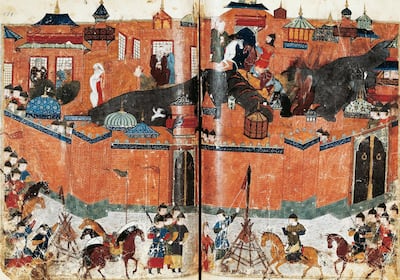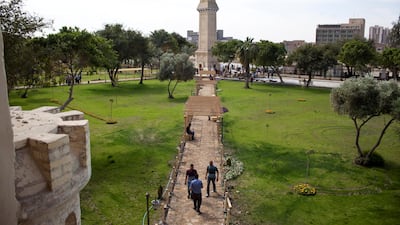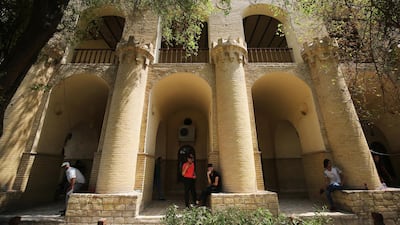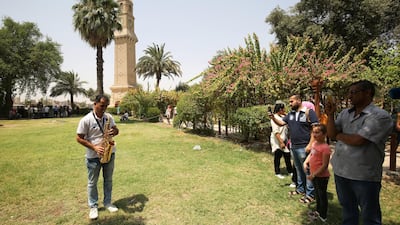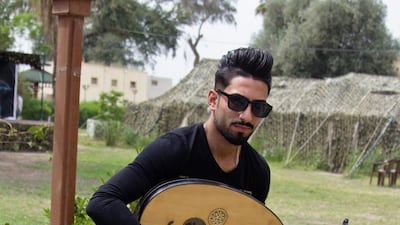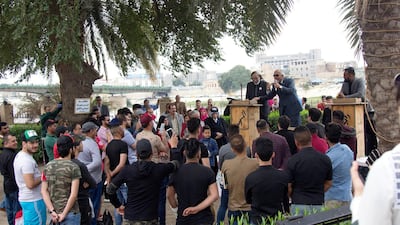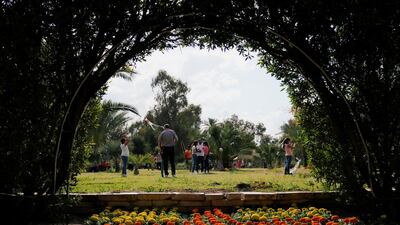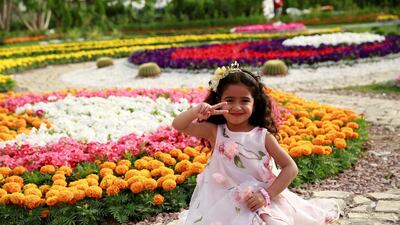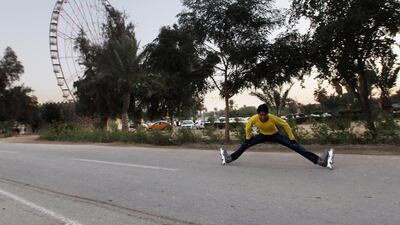Eighteen years ago this week, then US president George W Bush ordered the start of the American-led war against Iraq.
When Mr Bush announced that hostilities had begun, he also revealed that a bombing attempt to target and kill Saddam Hussein, Iraq’s president at the time, after receiving intelligence about his whereabouts, had failed – and failure meant that the last chance to avoid all-out war was gone.
That date, March 19 – because of the time difference, it was early March 20 in Iraq – is an important one but not as significant in my mind as March 21, 2003. This was the day the first wave of America’s promised "shock and awe" bombing campaign hit Baghdad, the Iraqi capital.
I was born in Baghdad but my parents moved to the UK when I was about eighteen months old. So, in 2003, I only knew Baghdad from what I saw on the TV news, or in films and books, or through the stories I heard from my mother and father and other family members. Growing up, it seemed to me that Baghdad might be like any other capital – whether London, Paris or Rome – a city populated by bright, cosmopolitan men and women, full of history and beauty.
Later, as Saddam dragged the country from one disaster to another, including the invasion of Kuwait, it became harder to equate the Baghdad of my parents with the place dominated by such a ruthless dictator, his henchmen and the ugly monuments and palaces he built there for his own personal glorification.
As a young man, I often wondered which one was the real Baghdad.
By the time of the 2003 conflict, the physical fate of the city, rather than my perceptions of it, was in grave danger from the immense firepower that America had promised to unleash on it if Saddam did not back down and allow UN weapons inspectors into the country to confirm if he indeed possessed weapons of mass destruction. He would not, and the country, its people and Baghdad were facing yet another war.
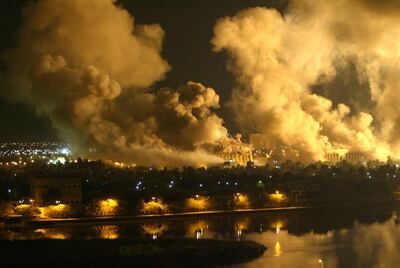
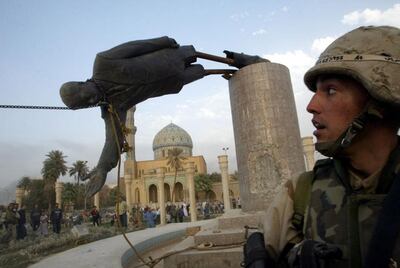
March 21 was a Friday, the end of the work week in London, where I was living. I remember watching the events unfold on television, with the darkening skies of the early evening outside my window adding to the oppressive atmosphere on the screen in front of me. CNN, like all major broadcasters, was providing blanket coverage of the start of the conflict.
Sitting alone, clutching a cushion to my heart, I wept for Baghdad as the bombs dropped. And I resolved to go there as soon as I was able to.
By June, I would be in Baghdad, exploring both the city of my childhood imagination and the reality it had become after war and the legacy of Saddam’s rule. I discovered that resilience was at the heart of its character.
Since its founding in the eighth century, Baghdad has suffered much tragedy, at the hands of the Mongols, then the Ottomans, then the British, then Saddam and then the Americans. More recently, it has endured civilian strife, sectarian bloodshed and ISIS.
When the Mongols first arrived, led by Hulagu Khan to sack the round city of Baghdad in 1258, they wreaked such destruction and slaughter that it brought about the end of a golden age of civilisation under Abbasid rule. Legend has it that the Tigris River ran black with the ink of the books that had been thrown into it, from Dar Al Hikma, the House of Wisdom, which the Mongols also destroyed.
After that, Baghdad would not recover its status as a leading capital city.
Never did a people or a city deserve all of this suffering.
But despite everything, Baghdad has always been a beautiful city. It has had moments of resurgence. In recent history, these include the early days of the monarchy after independence and in the 1970s amid high oil prices and the increased revenue it brought to the country.
I don’t doubt it will rise once again and emerge as a leading capital city in the Middle East. But I do doubt it will happen quickly.
Eighteen years on from the liberation from Saddam's regime, the idea of Baghdad remains locked in a struggle. Is it only what we see now on the news every day?
When I lived there for about six months, from the outside looking in, it would have seemed as if every moment was life threatening. The truth was more complex. Being there, life almost seemed normal most of the time, as you went about your day. It was only when you had to go to the Green Zone or if you ran into an American patrol on the street, that you felt the atmosphere of war. Yes, danger always lurked just around the corner but much of the time, mixing with Iraqis and foreigners alike, I sensed hope and frustration – admittedly more the latter than the former.
Now, when I watch or read the news about Baghdad, I see the same mix of hope and frustration about the direction in which it is heading. From the high emotion of Pope Francis' visit earlier this month to the despair over the killing of intelligence officer Lt Col Mahmoud Laith Hussein in the Mansour neighbourhood this week, Baghdad cannot find an even keel.
Mustafa Alrawi is an assistant editor-in-chief at The National












